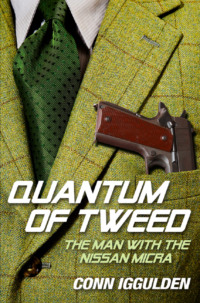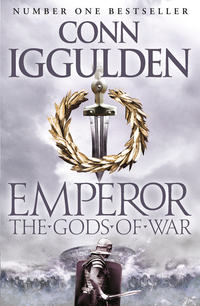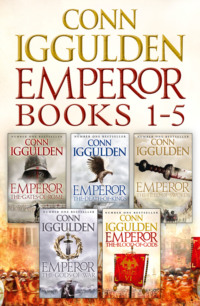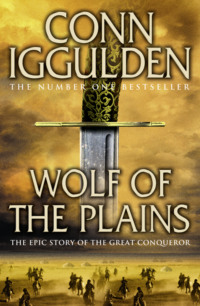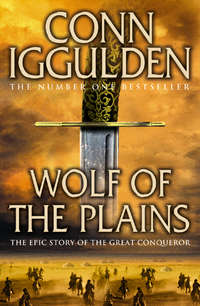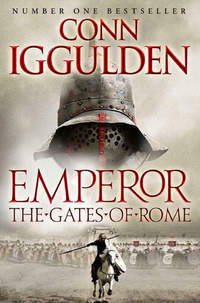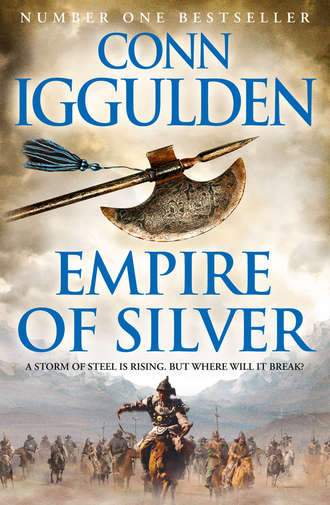
Полная версия
Empire of Silver
Kachiun had become cold and pale as they rode through the streets, approaching Ogedai’s palace. There seemed to be bodies everywhere, with pools of darkening blood staining the polished stone gutters. Not all of them bore the marks of Ogedai’s Guard tuman. Others wore dark deels or armour rubbed with lamp-black, dull and greasy in the dawn light. The night had been bloody and Kachiun dreaded what he would see in the palace itself.
Chagatai rode lightly, shaking his head at such destruction until Khasar considered cutting his throat and wiping the expression off his face. The presence of three of Chagatai’s bondsmen kept his hand from his sword hilt. They did not stare at the dead. Their eyes were only for the two men riding with their lord, the man who would be khan before the end of the day.
The streets were silent. If any workers had left their homes after the clashes and screams of the night, the sight of so many bodies had sent them scurrying back to bar the doors. The six horsemen made their way to the steps leading up to the palace doors. Dead men lay splayed on the pale marble, their blood in patterns along the veins of stone.
Chagatai did not dismount, but urged his pony up the steps, clicking his tongue as it trod gingerly past the corpses. The main door to the first courtyard stood open and there was no one to challenge his right to enter. Crows called to each other and there were hawks and vultures already overhead, drawn by the scent of death on the breeze. Kachiun and Khasar looked at each other in grim surmise as they passed under a bar of shadow into the yard beyond. The tree of silver shone there in the dawn, beautiful and lifeless.
The generals could read the patterns of dead well enough. There had been no fixed battle, with lines of men cut down. Instead, the bodies lay randomly, killed from behind or taken by shafts they never saw. They could almost sense the defenders’ surprise as men dressed in shadows had appeared and killed, cutting through them before anyone could organise a defence. In the silence, Chagatai was rapt as he dismounted at last. His pony was skittish with the smell of blood and he made a point of tying the reins securely to a post.
‘I begin to fear for my brother,’ Chagatai said.
Khasar tensed and one of the bondsmen raised a hand to him, reminding him of their presence. The man was grinning, enjoying his master’s show.
‘You need not fear,’ came a voice, making them all jump.
Chagatai spun instantly, his sword leaping out of its scabbard in one movement. His bondsmen were barely slower, ready for any attack.
Tsubodai stood there under an arch of carved limestone. He wore no armour and the morning breeze had not dried the patches of sweat on his silk tunic. A strip of cloth bound his left forearm and Chagatai could see a smear of blood seeping through it. Tsubodai’s face was weary but strong and his eyes were terrible as they met those of the man responsible for the death and destruction all around them.
Chagatai opened his mouth to demand some explanation, but Tsubodai went on.
‘My lord Ogedai is waiting for you in his audience hall. He bids you welcome in his home. He guarantees your safety.’ He spoke the last words as if they stuck in his throat.
Chagatai looked away from the rage he saw in the general. For an instant, his shoulders sagged as he understood his defeat. He had gambled it all on a single night. He did not look up at the slight sound of boots on stone above his head as archers appeared. He bit his lower lip and nodded to himself. Even so, he was his father’s son. He stood straight and sheathed his sword with the care of ritual. No trace of his shock or disappointment showed on his face as he smiled wryly at Tsubodai.
‘Thank the spirits he has survived,’ Chagatai said. ‘Take me to him, general.’
CHAPTER SIX
Chagatai’s bondsmen remained in the courtyard. They would have fought if he had asked them. Instead, he clapped one of them on the shoulder and shook his head before striding into the cloister behind Tsubodai. Chagatai did not look back as his men were surrounded by warriors of Ogedai and beaten to the ground. When one of them cried out, Chagatai set his jaw, disappointed the man could not die quietly for the honour of his master.
Khasar and Kachiun followed in silence. They watched Chagatai fall in beside Tsubodai, neither man looking at the other. At the audience chamber, Guards were all around and Chagatai merely shrugged and gave up his sword.
The door was of polished copper, red-gold in the morning light. Chagatai expected to enter, but the Guard officer tapped him on the armour and stood back, waiting. Chagatai grimaced, but he removed his long, scaled jacket and thigh pieces, as well as the heavy gloves and arm protectors. It was not long before he stood in just his jerkin, leggings and boots. It might have diminished another man to be so stripped, but Chagatai had been training for the festival for many months, wrestling, running and shooting hundreds of arrows each day. He was in superb physical condition and he made most of those around him look smaller and weaker than they were.
Not so Tsubodai. None of the Guards dared to come close to that man as he stood and silently dared Chagatai to protest. Though Tsubodai remained still, it was the stillness of a snake, or a sapling bent and ready to spring back.
Finally, Chagatai faced the Guard officer with one eyebrow raised. He endured being patted down, but he had no hidden weapons and the door swung open. He walked in alone. As it closed behind him, he heard Khasar begin to argue as he was held back. Chagatai was pleased Tsubodai and his uncles would not be witnesses. He had gambled and lost, but there was no shame in it, no humiliation. Ogedai had gathered loyal men to him, just as Chagatai had. His brother’s generals had proved more resourceful than his own. As it had been the night before, one brother would still be khan, and the other? Chagatai grinned suddenly as he saw Ogedai at the far end of the hall, sitting on a throne of white stone inlaid with patterns of gold. It was an impressive sight, as it was intended to be.
As he walked closer, Chagatai saw Ogedai’s hair was damp, loose and black on his shoulders. A purple mark on his cheek was the only visible proof of the night before. Despite the grandeur of the throne, his brother wore a simple grey deel over leggings and a tunic, with no more decoration than any herder of the plains.
‘I am glad to see you well, brother,’ Chagatai said.
Ogedai tensed as Chagatai walked smoothly towards him, his steps echoing.
‘Let us not play games,’ he replied. ‘I have survived your attacks. I will be khan at sunset today.’
Chagatai nodded, still smiling. ‘No games then, but you know, the strange thing is I spoke the truth. Part of me was dreading finding you killed. Ridiculous, yes?’ He chuckled, amused at the complexity of his own emotions. Family was a peculiar thing. ‘Still, I did what I thought best. I have no regrets or apologies. I think father would have enjoyed the risks I took.’ He bowed his head. ‘You’ll forgive me if I don’t congratulate you on your triumph.’
Ogedai relaxed subtly. He had spent years thinking of Chagatai as an arrogant idiot. He had almost missed him growing into a man used to responsibility and power. As Chagatai came to stand before him, Ogedai’s Guards stepped out and commanded him to kneel. He ignored them, remaining on his feet and looking around the room with an interested expression. It was a huge space to a warrior more used to the gers of the plains. The morning light flooded in from a window overlooking the city.
One of the Guards turned to Ogedai for permission and Chagatai smiled slightly. With any other prisoner, the man would have struck him down, or even hamstrung him to make him kneel. The hesitation acknowledged Chagatai’s power even as they sought to humble him.
Ogedai could almost admire his brother’s careless courage. No, he could admire it, even after such a night. The shadow of Genghis hung over them both and perhaps it always would. Neither they nor Tolui could ever match their father’s achievement. By any standard, they were lesser souls and had been from the moment they were born. Yet they had to live and grow and become men, skilful in their crafts. They had to thrive in that shadow – or let it smother them.
No one else understood Ogedai’s life as Chagatai did, not even their brother Tolui. He wondered again if he was making the right decision, but in that too he had to be strong. A man could waste his life worrying, that was all too clear. Sometimes you simply had to choose and shrug, however it came out, knowing that you could not have done more with the bones you were given.
Ogedai faced his brother and wished one last time that he could know how long he had to live. Everything depended on it. His son did not have the ruthless will to inherit. If Ogedai died that very day, Guyuk would not follow in the line of their father, the line of Genghis. It would pass to the man standing before him. Ogedai searched for calm, though his heart thumped and pattered in his chest, spreading a constant ache until it became like a blade between his ribs. He had not slept and he knew he ran the risk of collapse in dealing with Chagatai that morning. He had drunk a jug of red wine to steady his nerves and used a pinch of the foxglove powder. He could still taste the bitterness on his tongue and his head ached as if it was being slowly crushed.
For all he knew, he might rule as khan for just days before his heart gave out and burst in his chest. If that was his fate and he had killed Chagatai, the nation would tear itself apart in civil war. Tolui was not strong enough to hold them together. Neither he nor Ogedai’s son had gathered loyal generals to protect them through such an upheaval. Power would triumph over blood in that struggle.
The man who stood before him, his tension hidden, was perhaps the best hope for the nation. More, Chagatai was the one Genghis would have chosen if their brother Jochi had never been born. Ogedai felt his damp hair itch and he rubbed it unconsciously. The Guards still looked to him, but he would not let them beat Chagatai to his knees, not that day, though part of him yearned to see it.
‘You are safe here, brother,’ he said. ‘I have given my word.’
‘And your word is iron,’ Chagatai murmured, almost automatically.
Both of them recalled their father’s beliefs and honoured them. The great khan’s shadow clung to them like a cloak. The shared memories made Chagatai look up and frown, suddenly at a loss. He had expected to be killed, but Ogedai seemed troubled rather than triumphant or even vengeful. He watched with interest as Ogedai turned to his Guard officer.
‘Clear the room. What I have to say is for my brother alone.’ The man began to move but Ogedai stopped him with a raised hand. ‘No, bring Orlok Tsubodai as well.’
‘Your will, my lord,’ the officer replied, bowing deeply.
In just moments, the Guards along the walls were marching to the great copper doors. Tsubodai came in at their call. Outside, Khasar could be heard still arguing with the officers before the door swung shut, leaving the three men alone in the echoing space.
Ogedai rose from the throne and stepped down so that he was at Chagatai’s level. He crossed to a small table and poured himself a cup of airag from a jug, drinking deeply and wincing as it stung ulcers in his mouth.
Chagatai glanced at Tsubodai only to find the man glaring at him like an enemy. He winked at the general and looked away.
Ogedai took a slow breath and his voice shook at the strain of saying what he had kept hidden for so long.
‘I am my father’s heir, Chagatai. Not you, or Tolui, or Kachiun, or Jochi’s son, or any of the generals. As the sun sets today, I will accept the oath of the nation.’ He paused and neither Chagatai nor Tsubodai interrupted as the silence stretched. Ogedai looked out of the tall window, enjoying the sight of his city, though it was quiet and frightened after such a night.
‘There is a world outside the one we know,’ he said softly, ‘with cultures and races and armies who have never heard of us. Yes, and cities greater than Yenking and Karakorum. To survive, to grow, we must remain strong. We must conquer new lands, so that our army is always fed, always moving. To stop is to die, Chagatai.’
‘I know this,’ Chagatai said. ‘I am not a fool.’
Ogedai smiled wearily. ‘No. If you were a fool, I would have had you killed in the courtyard with your bondsmen.’
‘Then why am I still alive?’ Chagatai said. He tried to keep his tone casual, but this was the question that had burnt him ever since he saw Tsubodai in the courtyard of the palace.
‘Because I may not live to see the nation grow, Chagatai,’ Ogedai said at last. ‘Because my heart is weak and I could die at any moment.’
The two men facing him stared as if struck. Ogedai couldn’t bear to wait for their questions. Almost with relief, he went on, the words spilling out.
‘I remain alive with the help of bitter Chin powders, but I have no way of knowing how long I have left. I wanted just to see my city finished and to be khan. Here I am, still alive, though I live in pain.’
‘Why was I not told this before?’ Chagatai said slowly, stunned by the implications. He knew the answer before Ogedai replied and nodded as his brother spoke.
‘Would you have given me two years to build a city, a tomb? No, you would have challenged me as soon as you heard. Instead, I have made Karakorum and I will be khan. I think father would have appreciated the risks I took, brother.’
Chagatai shook his head as things he had puzzled over began to fall together.
‘Then why…?’ he began.
‘You said you are no fool, Chagatai. Think it through, as I have done a thousand times. I am my father’s heir, but my heart is weak and I could fall at any moment. Who would lead the nation then?’
‘I would,’ Chagatai said softly.
It was a hard truth, that Ogedai’s son would not live to inherit, but neither man looked away from the other. Chagatai began to appreciate something of what Ogedai had gone through in the years since their father’s death.
‘How long have you known of the weakness?’ he asked.
Ogedai shrugged. ‘I’ve had twinges as long as I can remember, but it has grown worse in the last few years. There have been…more serious pains. Without the Chin powders, I do not think I have much time.’
‘Wait,’ Chagatai said, frowning. ‘You say I am safe? You will let me leave with this information? I don’t understand.’
It was Tsubodai who replied and he too stared at Ogedai as if seeing him for the first time.
‘If you died, Chagatai, if you were killed as you deserve for the attacks last night, who would keep the nation whole when the khan falls?’ Tsubodai’s face twisted into a furious sneer. ‘It seems you will be rewarded for your failures, my lord.’
‘That is why you too had to hear this, Tsubodai,’ Ogedai said. ‘You must put aside your anger. My brother will be khan after me and you will be his first general. He too is a son of Genghis, the bloodline of the man you gave oath to serve.’
Chagatai struggled to take in what he had heard.
‘You expect me to wait then, to be quiet and peaceful while I wait for you to die? How do I know this is not some ruse, something dreamed up by Tsubodai?’
‘Because I could kill you now,’ Ogedai snapped, his temper fraying visibly. ‘I still could, Chagatai. Why else would I offer you your life, after last night? I speak from a position of strength, brother, not failure. That is how you should judge my words.’
Reluctantly, Chagatai nodded. He needed time to think and he knew he was not going to be given that luxury.
‘I have made promises to those who have supported me,’ he said. ‘I cannot simply live the life of a herder while I wait. It would be a living death, unworthy of a warrior.’ He paused for a moment, thinking quickly. ‘Unless you make me your heir, publicly. Then I will have the respect of my generals.’
‘That I will not do,’ Ogedai said immediately. ‘If I die in the next few months, you will be khan whether I have made you heir or not. If I survive longer, I will not deny the chance to my son. You must take your chances with him, as he must with you.’
‘Then you offer me nothing!’ Chagatai replied, raising his voice almost to a shout. ‘What sort of a deal is this, based on empty promises? Why even tell me? If you die soon, yes I will be khan, but I will not spend my life waiting for a messenger who might never come. No man would.’
‘After the attacks last night, you had to be told. If I let it pass, if I just sent you back to your tuman, you would see only weakness. How long before you or another challenged me then? Yet I am not leaving you with nothing, Chagatai. Far from it. My task is to expand the lands we have conquered, to make the nation safe to thrive and grow by doing so. To our brother Tolui, I will give the homeland, though I will keep Karakorum as my own city.’ He took a deep breath, seeing the light of anticipation and greed in his brother’s eyes. ‘You will take Khwarezm as the centre of your lands, with the cities of Samarkand, Bukhara and Kabul. I will give to you a khanate two thousand miles across, from the Amu Darya river to the Altai mountains. You and your descendants will rule there, though you will pay tribute to me and to mine.’
‘My lord…’ Tsubodai began, appalled.
Chagatai chuckled derisively. ‘Let him speak, general. This is a matter for family, not for you.’
Ogedai shook his head. ‘I have planned this for almost two years, Tsubodai. My challenge is to put aside the rage I feel for the attacks on my family and make the right choices, even now.’
He raised his head to stare at Chagatai, and his brother felt the surging emotions in his gaze.
‘My son and daughters survived, Chagatai. Did you know that? If they had been killed by your warriors, I would be watching you slow-roasted at this moment and listening to you scream. Some things I will not bear in the name of my father’s empire, his vision.’ He paused, but Chagatai said nothing. Ogedai nodded, satisfied he had been understood.
‘You have a position of strength, brother,’ Ogedai said. ‘You have generals loyal to you, while I have a vast empire that must be administered and controlled by able men. After today, I will be the gur-khan, the leader of nations. I will take your oath and honour mine to you and your descendants. The Chin showed us how to rule many lands, Chagatai, with tribute flowing back to the capital.’
‘You have not forgotten what happened to that capital?’ Chagatai asked.
Ogedai’s eyes glinted dangerously. ‘I have not, brother. Do not think that one day you will lead an army into Karakorum. Our father’s blood runs in my veins as much as it does in yours. If you ever come to me holding a sword, it will be against the khan and the nation will answer. I will destroy you then with your wives and children, your servants and followers. Do not forget, Chagatai, that I survived the night. Our father’s luck is mine. His spirit watches over me. Yet I am offering you an empire greater than anything outside the lands of the Chin.’
‘Where I will rot,’ Chagatai said. ‘You would have me lock myself in a pretty palace, surrounded by women and gold…’ he struggled for something suitably appalling,’…chairs and crowns?’
Ogedai smiled slightly to see his brother’s horror at such a prospect.
‘No,’ he said. ‘You will raise an army for me there, one I may call on. An army of the West, as Tolui will create an army of the Hearth and I will gather one of the East. The world has grown too large for one army of the nation, my brother. You will ride where I tell you to ride, conquer where I tell you to conquer. The world is yours, if you can put aside the base part of you that tells you to rule it all. That you may not have. Now give me an answer and your oath. Your word is iron, brother and I will take it. Or I can just kill you now.’
Chagatai nodded, overcome with the sudden shift from fatalistic numbness to new hope and new suspicions.
‘What oath will you accept?’ he said at last, and Ogedai knew he had won. He held out the wolf’s-head sword that Genghis had worn.
‘Swear with your hand on this sword. Swear by our father’s spirit and honour that you will never raise a hand in anger against me. That you will accept me as gur-khan and be a loyal vassal as khan of your own lands and peoples. Whatever else happens is the will of the sky father, but on that, you can make an oath I will respect. There will be many others today, Chagatai. Be the first.’
The nation knew that Chagatai had gambled for the horsetails, throwing his men at the city of Karakorum. When Ogedai and his officers rode around the city that morning in a show of strength, they saw that the attempt had failed. Yet somehow Chagatai too rode proudly as he rejoined his tuman outside the city. He sent his bondsmen to collect the corpses and carry them far beyond Karakorum, out of sight. In just a short time, only rusty marks were left on the streets, the dead as well hidden as the plans and stratagems of great men. The warriors of the nation shrugged and continued to prepare for the festival and the great games that would begin that day.
For Kachiun and Khasar, it was enough for the moment to know Ogedai had survived. The games would go ahead and there would be time to think of the future once he was made khan. Tumans that had faced each other in anger the night before sent teams of bowmen to the archery wall outside Karakorum. For those men, the battles of princes were a different world. They were pleased their own generals had survived; more pleased that the games had not been called off.
Tens of thousands gathered to watch the first event of the day. No one wanted to miss the early rounds, especially as the final would be seen by only thirty thousand, in the centre of the city. Temuge had organised the paper tokens that gained entry to that final enclosure. They had been changing hands for horses and gold for days before the event. While Ogedai had fought for his life, women, children and the elderly were quietly sitting in darkness where they could watch the greatest skills of their people demonstrated. Even the game of thrones had come second place to that desire.
The archery wall loomed above the east gate of Karakorum, bright in the rising sun. It had been built over the previous days, a massive construction of wood and iron that could hold more than a hundred small shields, each no larger than a man’s head. Around it, a thousand iron stoves added smoke to the air, cooking a feast for those who watched. The smell of fried mutton and wild onions was strong around the camp and the knowledge that civil war had been as close as a breath the night before did not diminish their appetites or still the ready laughter as the wrestlers practised with friends on the dry grass. It was a good day, with the sun strong on their backs as the nation prepared to celebrate a new khan.
CHAPTER SEVEN
Khasar stood with nine of his tuman’s best archers, waiting for his turn. He had to struggle to find the calm he needed and he took long, slow breaths while he held up each of the four arrows he had been given. In theory, they were all identical, products of the best fletcher in the tribes. Even so, Khasar had rejected the first three he had been handed. It was nerves in part, but he had not slept and he knew the day would be hard as it caught up with him. He was already sweating more than usual, as his body complained and ached. The only consolation was that every other archer had been awake as well. Yet the young ones were bright-faced and cheerful as they saw the grey pallor of more senior men. For them, it was a day of great potential, a better chance than they could have hoped to win recognition and Temuge’s precious medals of gold, silver and bronze, each stamped with the face of Ogedai. While he waited, Khasar wondered what Chagatai would have done if he had been successful. No doubt the heavy discs would have been quietly taken away and lost. Khasar shook his head to clear it. Knowing Chagatai, he would have used them anyway. The man felt no embarrassment about small things. In that at least, he was the true son of his father.


